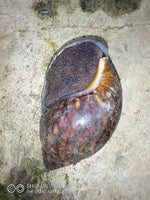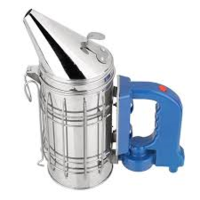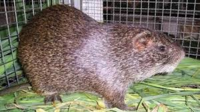Post by Ismail AbdulAzeez on Aug 6, 2010 22:47:01 GMT 1
Snail farmers in Nigeria are very few. Most of them operate on a small scale. The reason is because the awareness is yet to be created. But the demand is high locally and internationally.
The present number of farmers cannot meet the demand because they pursue traditional snail farming. Generally, problems facing traditional method of snail farming include:
• Hatching the Snail eggs
• Formulation of the best feed for snail at whatever stage of growth
• The best care and management practices to reduce mortality rate to Zero level.
Major reasons for snail farming
Deforestation:
Snail has disappeared from the dinning table because of deforestation. Snails don’t have where to stay because of the disappearance of forest trees and bushes.
High local and export demand:
The demand for snail in Nigeria and other countries of the world is very high. Exporters as well as consumers demand for it like gold. Presently, we cannot meet the local and export demand for snail but with time we shall solve this problem, at least to an extent.
The value of hard currency makes it possible for exporters to source it at all cost, thus making the few available in the market to be quite expensive for an average family to afford. The demand for snail abroad is more than the demand in Nigeria. These countries must have known the value of snail better than the others.
Non-selective picking:
Raining season is the most suitable period for snail breeding. Though snails can breed anytime of the year if properly cared for. The picker of this animal do not spare any one,because they are only out to make money and if nothing is done to ensure continuous reproduction, sooner or later they will disappear from creation. Then the generation urban will blame us.
The benefits of snail farming
• Snail farming does not constitute nuisance to the environment; the droppings are generally firm and odourless.
• Snail is noiseless and easy to handle.
• Snail meat is recommended for patients with hypertension and heart attack due to its low level of cholesterol and fat.
• Snail blood is used during male circumcision, making tribal marks by native doctors.
• Snail blood and palm kernel oil in equal parts could be used to treat stroke and headache.
• The shell could be used for ornamental purposes.
• The shell is a source of calcium and phosphorus replacing bone meal and oyster shell in mixing rations for animals.
• Snail farming require little land or space.
• Feed for snails are cheap and could be source locally.
• Snail farming is not capital intensive when compared with other livestock farming.
• Snail meat contain anti tuberculosis qualities.
• Mucous of Helix Promatia favours action of penicillin.
Slugs (snails) in coconut milk has curative properties for Asthma.
• Ortho calcium phosphate is a curative substance extracted from snails and used in medicine by Japanese for Kidney disease, anaemia, diabetes and circulatory disorder.
• Snail meat is cooked along with other local herbs, for pregnant women to ease labour.
• Snail farming can be done as a part time business.
• Snail farming is less stressful compared to other livestock farming.
• Snail farming can be easily incorporated in other livestock farming like grasscutter farming.
Prospect of the business
In spite of the apparent value of the snail in human diet, no significant efforts have been made so far at its large scale rearing.
There is however a growing awareness of the high nutritional and medical value of snail in the diet of the home. With these new trends, snail will gradually emerge as a domestic mini livestock of in importance in Nigeria. Snail farming in Nigeria is now being approached as a hobby by interested individuals while commercial large scale are expected to spring up when many people eventually come to appreciate the advantages of snail farming.
One of these is the potential for high return on investment with low level of inputs. An outstanding phenomenon is the ability of snails to continue laying several times over a period, after a single mating. The snail can, therefore, produce at least five times its own body weight of meat in a year.
As more people become aware of the medicinal importance of snail meat, there will be a trend towards more consumption of the meat. Also as snail farming expands, more research into snail production and usefulness will be conducted. This may help to disabuse the mind of people who regard snail eating as a taboo.
To scientists and researchers, snails and snail farming in Nigeria offer an extensive fertile ground for research.
In general snails are not expensive to rear; the most important thing is to get all conditions for their survival right. The losses too, may not be much in case of failure because not much is invested in terms of capital especially when you are the owner of your space.
Do not however, forget that you need to employ the services of an expert in the care of the snails to ensure that they are in good hands all the time and to enhance the quantity produced after a long period of waiting.
By:
IsmailAbdulAzeez.
The Manaing Consulting.
The Thy Consulting.
ismailabdulazeez.com/snail-farming/
Tel: 08023080835 , 07033632285.
The present number of farmers cannot meet the demand because they pursue traditional snail farming. Generally, problems facing traditional method of snail farming include:
• Hatching the Snail eggs
• Formulation of the best feed for snail at whatever stage of growth
• The best care and management practices to reduce mortality rate to Zero level.
Major reasons for snail farming
Deforestation:
Snail has disappeared from the dinning table because of deforestation. Snails don’t have where to stay because of the disappearance of forest trees and bushes.
High local and export demand:
The demand for snail in Nigeria and other countries of the world is very high. Exporters as well as consumers demand for it like gold. Presently, we cannot meet the local and export demand for snail but with time we shall solve this problem, at least to an extent.
The value of hard currency makes it possible for exporters to source it at all cost, thus making the few available in the market to be quite expensive for an average family to afford. The demand for snail abroad is more than the demand in Nigeria. These countries must have known the value of snail better than the others.
Non-selective picking:
Raining season is the most suitable period for snail breeding. Though snails can breed anytime of the year if properly cared for. The picker of this animal do not spare any one,because they are only out to make money and if nothing is done to ensure continuous reproduction, sooner or later they will disappear from creation. Then the generation urban will blame us.
The benefits of snail farming
• Snail farming does not constitute nuisance to the environment; the droppings are generally firm and odourless.
• Snail is noiseless and easy to handle.
• Snail meat is recommended for patients with hypertension and heart attack due to its low level of cholesterol and fat.
• Snail blood is used during male circumcision, making tribal marks by native doctors.
• Snail blood and palm kernel oil in equal parts could be used to treat stroke and headache.
• The shell could be used for ornamental purposes.
• The shell is a source of calcium and phosphorus replacing bone meal and oyster shell in mixing rations for animals.
• Snail farming require little land or space.
• Feed for snails are cheap and could be source locally.
• Snail farming is not capital intensive when compared with other livestock farming.
• Snail meat contain anti tuberculosis qualities.
• Mucous of Helix Promatia favours action of penicillin.
Slugs (snails) in coconut milk has curative properties for Asthma.
• Ortho calcium phosphate is a curative substance extracted from snails and used in medicine by Japanese for Kidney disease, anaemia, diabetes and circulatory disorder.
• Snail meat is cooked along with other local herbs, for pregnant women to ease labour.
• Snail farming can be done as a part time business.
• Snail farming is less stressful compared to other livestock farming.
• Snail farming can be easily incorporated in other livestock farming like grasscutter farming.
Prospect of the business
In spite of the apparent value of the snail in human diet, no significant efforts have been made so far at its large scale rearing.
There is however a growing awareness of the high nutritional and medical value of snail in the diet of the home. With these new trends, snail will gradually emerge as a domestic mini livestock of in importance in Nigeria. Snail farming in Nigeria is now being approached as a hobby by interested individuals while commercial large scale are expected to spring up when many people eventually come to appreciate the advantages of snail farming.
One of these is the potential for high return on investment with low level of inputs. An outstanding phenomenon is the ability of snails to continue laying several times over a period, after a single mating. The snail can, therefore, produce at least five times its own body weight of meat in a year.
As more people become aware of the medicinal importance of snail meat, there will be a trend towards more consumption of the meat. Also as snail farming expands, more research into snail production and usefulness will be conducted. This may help to disabuse the mind of people who regard snail eating as a taboo.
To scientists and researchers, snails and snail farming in Nigeria offer an extensive fertile ground for research.
In general snails are not expensive to rear; the most important thing is to get all conditions for their survival right. The losses too, may not be much in case of failure because not much is invested in terms of capital especially when you are the owner of your space.
Do not however, forget that you need to employ the services of an expert in the care of the snails to ensure that they are in good hands all the time and to enhance the quantity produced after a long period of waiting.
By:
IsmailAbdulAzeez.
The Manaing Consulting.
The Thy Consulting.
ismailabdulazeez.com/snail-farming/
Tel: 08023080835 , 07033632285.













